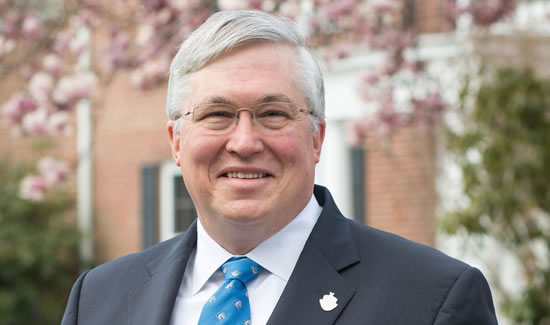GUEST EDITORIAL
Serving Our Students
By Tim Hall, President, Mercy College

Tim Hall, President, Mercy College
At Mercy College, we take seriously the obligation to serve our students. It is an obligation we inherited from the Sisters of Mercy, who gave the college its motto: inserviendo consumeri, “to be consumed in service.”
We don’t call the service owed to our students “customer service,” though, since we don’t think of our students as “customers,” any more than a physician would call her patients “customers” or a Jewish rabbi her congregants “customers.” In fact, our college founders would probably be astonished at the notion that service finds its highest expression when located in a commercial transaction. They would say, I think, “Can’t you imagine service in contexts other than where money is changing hands?” So, we serve our students, even though we don’t think of them as customers.
Our students can’t opt out of taking final exams or writing research papers “because they are paying our salaries.” That’s what makes them students and not simply customers. But even as students, they deserve our best service. Why?
First, because even though they may not be our customers, they are someone’s customers and they increasingly understand what good service looks like. Institutions interested in attracting today’s students can’t afford to have lousy cultures of service. Why should students put up with burdensome registration processes when they know what it’s like to shop on Amazon? Why should they tolerate inhospitable offices when they know what talking with a Zappos customer service representative is like? Asking these questions doesn’t mean students are “always right.” They aren’t. Excellent service to our students doesn’t assume that they are right, only that they deserve our respect.
Second, students deserve our best service because this kind of service contributes to their ultimate persistence and graduation. At Mercy College, we’re not interested in seeing students acquire a few college credits and a mountain of crippling college debt. We’re trying to structure our affairs to support our students’ ultimate success. For us, that means we are working every day to create conditions in which they will cross the finish line and graduate. Accordingly, once we admit students, we stop being preoccupied with whether they are “college ready.” At that point, we are laser-focused on whether we are “student ready.” For us, being student ready means being ready to offer our students the kind of service that will support their ultimate success. We think it’s better for them to spend time preparing for their classes rather than wandering around our campuses trying to handle some bit of college business, like getting a parking pass or making arrangements to obtain financial aid.
Service excellence has joined a roster of success-oriented strategies at Mercy College. We know there are strategies—mostly at scale—that impact all or most of our students and create an academic environment where our students are more likely to succeed. We call these strategies collectively the Mercy Success Toolkit. The toolkit consists of practices such as intrusive advising, co-requisite remediation, guided pathways, and choice architecture. Across the past ten years, the Mercy Success Toolkit has seen our freshmen retention rates increase by fourteen percentage points. Service excellence, the excellence our students deserve even if they are not our customers, is a key element of increased success for our students. #
